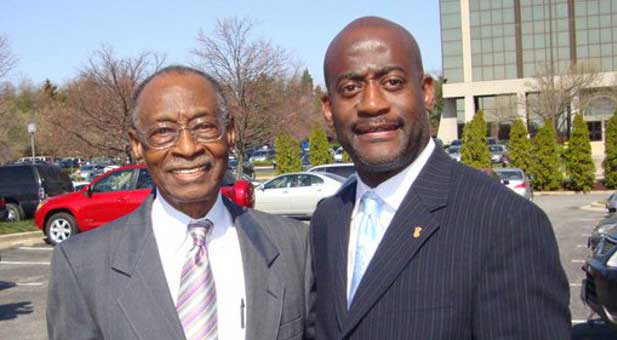I can’t remember very much of my early childhood. There are faded glimpses of memories, a picture of playing near a stream in the back of the house trying to catch tadpoles, playing football in the field across the street, falling asleep in the barber’s chair, stubbornly refusing to eat peas because my hypersensitive sense of smell repulsed at their pungent odor.
One memory stands out with vivid clarity. It was the moment that my mother called my brother, my sister, and me into her room so that we could talk to our father on the phone. My father traveled a lot in his position as a purchasing agent for General Electric. We would talk on the phone occasionally; however, this call was different. The look on my mother’s face was pity and sadness. I knew something was wrong.
My older brother took the phone, and within seconds he burst into tears. I couldn’t imagine what was happening. My sister was next to put her ear to the phone. Tears began to silently drip down her face. I remember seeing her eyes glaze over, as if she were in a fog.
Then it was my turn.
As I took the phone, my father’s deep baritone voice spoke matter of factly. “Son, your mother and I are not going to be married any longer. I won’t be living at home. I love you little buddy.”
I can’t remember any more. At five years of age, I couldn’t grasp what this would mean to me or how it would define me.
The next few years are a blur. The time frame is baffling.
My mother began to date a man who was once a business associate of my father’s. Obviously, I was too young to understand the dynamics of adultery, only to find out some of the distorted details later in life. For a child, everything was out of sync. It was as if the rhythm of my life had been interrupted. I would spend my childhood seemingly out of step with everyone, confused and dazed by the whole thing.
One instance seems to define my childhood experience. My mother had been to the grocery store. She treated us with single-pack Reese’s Peanut Butter Cups. I knew that Reese’s normally come two to a package, so after I enjoyed one cup, I asked for another. The strange man firmly interrupted my mother’s “Yes” with a harsh tone and said, “No.” He intimidated my mother, and she agreed with him. I didn’t get to eat the second Reese’s.
I was confused. Who was this guy? Who was he to determine my diet?
My mother married him. He was a strange man, but all of a sudden, he was supposed to be my father. I couldn’t understand that.
He forced my mother to stop calling me by my given name, “Gary,” and started referring to me as “Neil,” which is my middle name. Then he dropped my name “Kennedy,” and gave me “Roberson” as my last name. In one swift move, my identity was lost.
Every school year on the first day of class, my new teacher would call roll. “Gary Kennedy.” I remember the embarrassment of walking to the teacher’s desk each September to explain the stupidity of my life.
This identity theft impacted me more than you can imagine. My thoughts were constantly, ‘Who are you?’
I had no heritage. I had no baseline. I had no father to tell me of his past and direct my future.
This confusion was only exacerbated by the constant strife in our home. Alcohol abuse, occasional physical abuse, and daily (if not hourly) verbal assaults were the norm.












